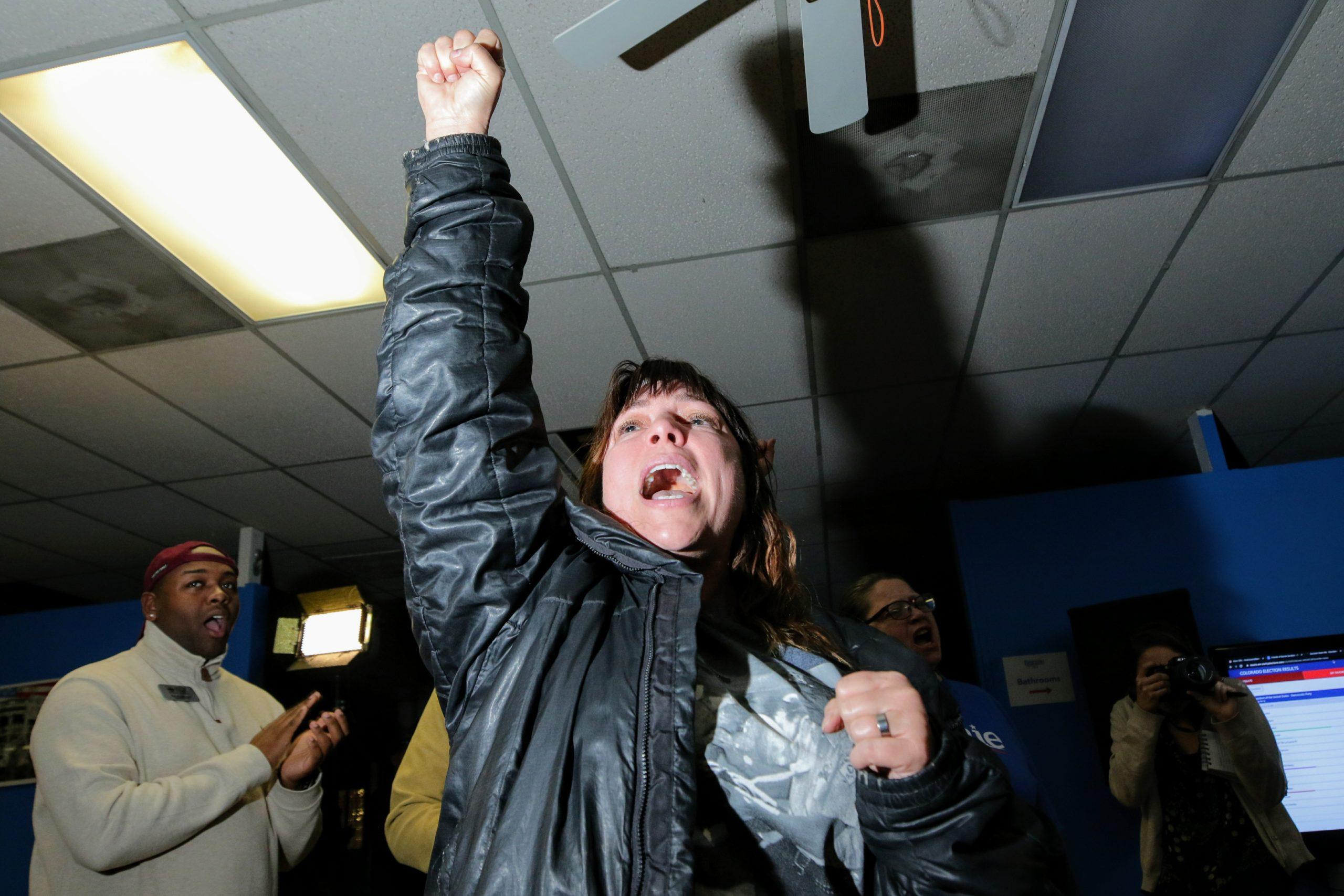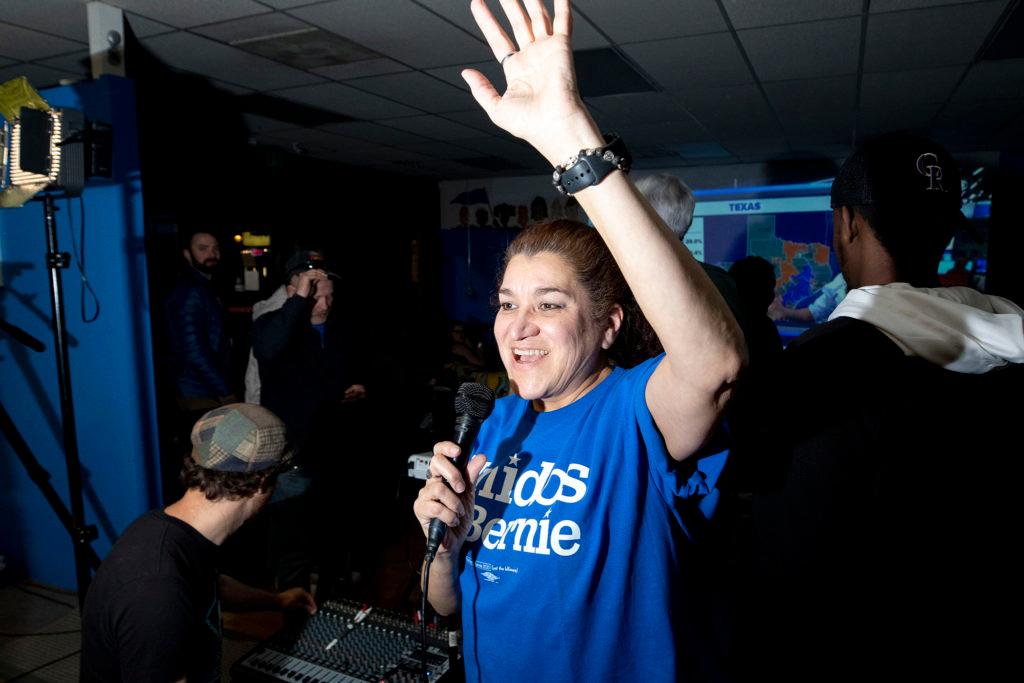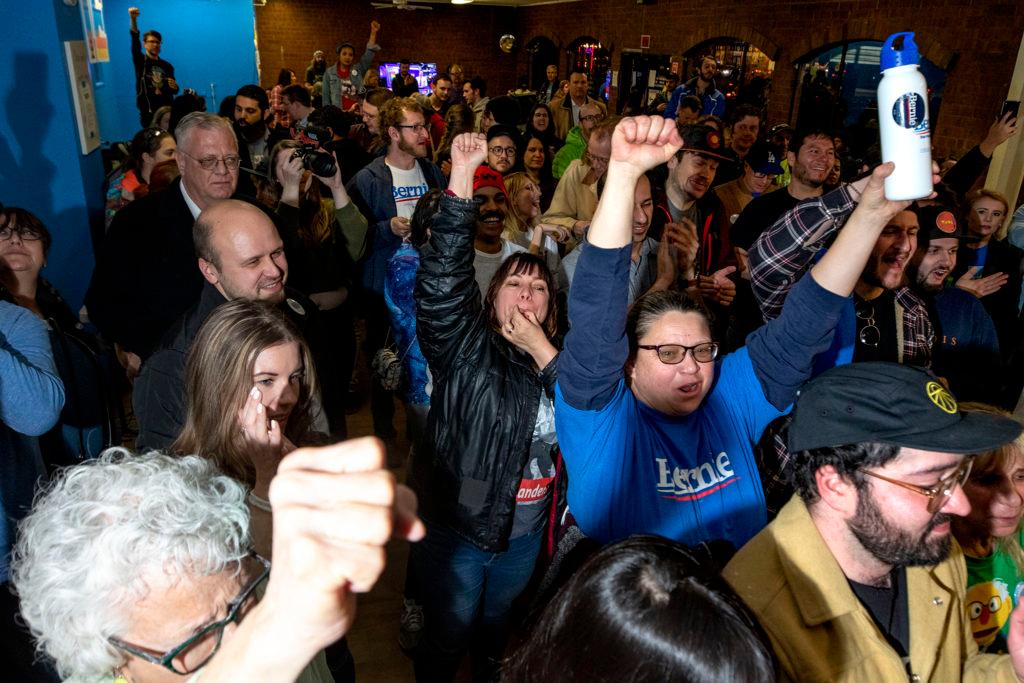
Updated 10:25 p.m.
Vermont Senator Bernie Sanders is poised to pull off a double-digit victory in Colorado's Democratic presidential primary, leading with about 36 percent of the vote in preliminary returns. Sander's strength was distributed statewide, with only around a dozen of Colorado's 64 counties going for a different candidate.
Former Vice President Joe Biden and former New York Mayor Michael Bloomberg essentially tied for second in Colorado, with each hovering around 22 percent. Massachusetts Senator Elizabeth Warren trailed with just over 17 percent of the vote.
It’s Sanders’ second Colorado victory. In 2016, he handily won the state caucuses, taking 59 percent of the vote against Hillary Clinton. That format, which requires voters to show up in person for hours-long events, seemed like a natural fit for Sanders’ grassroots army.
This Super Tuesday showing, where unaffiliated voters were also allowed to participate for the first time, underscores the state’s shift to the left among young voters.
"I really think if people gave him a legitimate chance, I think he could pull it off. I know for a fact he could pull it off," said Anthony Alvarez, a Sanders volunteer at the campaign watch party.
In 2020, there were far more voters involved because Colorado has switched to an open primary system. Democratic and unaffiliated voters simply mailed in ballots. As a result, turnout has quintupled or more.
Sanders entered Tuesday night with strong polling in Colorado. Recent results showed him with an advantage of anywhere from 9 to 20 percentage points.
Several hundred people packed Sanders’ Denver headquarters to watch the results. One speaker boasted to loud applause at how quickly Colorado was called for Sanders. It was mostly a younger crowd standing in an open room with a few large TV screens.

"I really like his Medicare for all, only for the simple fact that I myself have a few medical issues that I really think that I could benefit from,” Alvarez said.
He attends the Community College of Denver and the Emily Griffith Technical School and he supports that Sanders wants students to receive free tuition to attend public colleges and universities. "Paying for both institutions, it's kind of costly," he notes.
Colorado Democratic Nomination
Colorado offered up 67 delegates on Tuesday — small potatoes compared to California and Texas, which were also in play, but still among the larger states so far.
The victory had different significance than Sanders’ win here in 2016. In that contest, Sanders had won only a single state — New Hampshire — before Super Tuesday, when he won Colorado and three other states. Also, he only had one opponent.
This year, Sanders had already won three early states before Super Tuesday. Instead of trying to break into the race, he was trying to hold on to his frontrunner status.
National Super Tuesday Results
While the state’s voters have decided, its political establishment hasn’t coalesced — not publicly, anyway. Colorado’s Congressional Democrats and Gov. Jared Polis — who are superdelegates — have stayed quiet. So has superdelegate Morgan Carroll, the Democratic Party chair.
Biden has the endorsement of Denver Mayor Michael Hancock and Senate President Leroy Garcia. Sens. Sanders and Warren have endorsements from state legislators, among others, while Bloomberg has the seal of former Denver Mayor Wellington Webb.
Delegate Allocation Will Take A While
Figuring out how many Colorado delegates the Democratic frontrunners have won is not as simple as watching the statewide results.
Under Democratic National Committee rules, delegates are awarded based on both state-level and congressional district results, to candidates that pull 15 percent or more of the vote. Of Colorado’s 67 delegates, 44 will be divided based on how well the candidates do in each of the state’s seven congressional districts and the other 23 are tied to statewide results.
Because election results are released on a county-by-county basis, it could take the Democratic party days or weeks to calculate the congressional district breakdowns, and there’s a chance that Tuesday night’s winner might not end up claiming the most delegates if his support is particularly clustered in a few areas of the state.
Colorado GOP Nomination
Turnout Tops 2019
Because this is Colorado’s first presidential primary since 2000, the state doesn’t have any historic data to measure 2020’s turnout against.
But by Tuesday afternoon, nearly 1.5 million Colorado voters had returned their ballots, closing on the total number of votes cast in the 2019 general election, when there were two initiatives on the statewide ballot. In the 2018 general election, 2.6 million people voted.

One thing is clear: this presidential primary definitely delivered greater public participation than the former caucus process. The hotly contested race between Sanders and Hillary Clinton brought out more Democrats than expected for the 2016 precinct caucuses, leading to long lines and complaints about disenfranchisement. But in terms of raw numbers, only around 120,000 Democrats actually participated. On the other side, the Colorado GOP’s decision to cancel its statewide straw poll depressed turnout to its caucuses.
The primary election brought candidates and their advertising dollars to the state in the run-up to Super Tuesday. Every leading Democrat, except Biden, held events in Colorado in recent weeks. By late February, former New York Mayor Michael Bloomberg had spent $7.8 million on TV ads in Colorado, far outpacing other candidates. Bernie Sanders campaign spent $623,694 on ads and Elizabeth Warren put in $327,458. In contrast, total pre-caucus ad buys in 2016 only reached about two million dollars.
The Associated Press contributed to this report.









